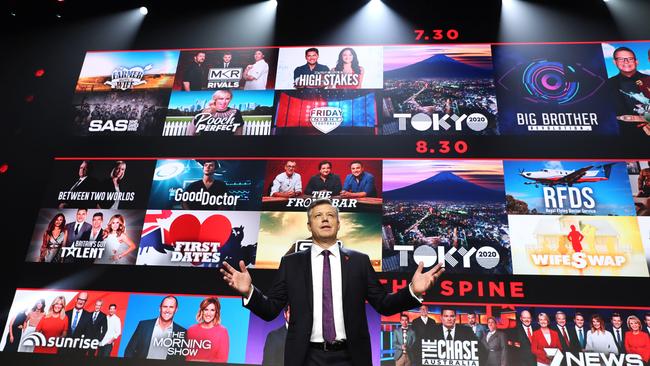Industry to cut costs as ad market slides
Media analysts are bracing for further cost cuts and consolidation as companies continue to fight weak advertising markets.

Media analysts are bracing for further cost cuts and industry consolidation as companies continue to fight weak advertising markets.
However, despite warnings from Nine Entertainment Co and Seven West Media last week, analysts believe traditional media companies can endure conditions if they diversify assets and find more efficiencies.
Brian Han, senior equity analyst at Morningstar, said conditions were more “pronounced” than he had previously seen.
“Looking into next year, so many of them are hoping for conditions to improve. I just hope that it is a case of hoping for the best, but planning for the worst,” Mr Han told The Australian.
“That planning for the worst part involves … these companies being very vigilant on the cost front … looking for cuts and efficiency gains.”
JPMorgan analyst Eric Pan said he was still expecting a decline in the low single digits, pointing to factors such as a weak economy, low industrial production and weak consumer sentiment.
“At the end of the day, advertising spending is tied … to how the economy’s performing,” he said.
In September the Standard Media Index, which tracks spending of most of Australia’s media buying agencies, reported the 13th consecutive month of decline.
Last week analysts from UBS, JPMorgan and Macquarie cut their forecasts and target price on Nine following a profit warning. After Seven West Media’s update to trading guidance, which flagged a further decline in revenue for its television business, JPMorgan similarly reduced revenue and earnings estimates.
Mr Han said that while he expected the market to improve in the second half of the fiscal year, it wouldn’t recover well enough to offset the decline in the first half.
But he said the conditions gave “more credence” to Nine’s decision to merge with Fairfax Media last year. “The whole purpose of the merger is to reduce their dependence on the advertising market so that longer term … those digital-centric properties or assets contributions from them can outweigh contributions from TV and newspapers,” Mr Han said.
Mr Han said new Seven chief executive James Warburton was trying to reduce exposure to struggling businesses but suggested he had a bigger endgame that involved reducing dependence on television.
“In (Mr Warburton’s) mind and the Stokes family’s mind, there is a longer-term endgame … and it could well be rationalise, consolidate and become more efficient, get the stock price up and use it as a currency to do something bigger down the track,” he added.
The analyst also took aim at television companies for focusing too much on talent and television ratings.
“For TV companies, as long as they keep on harping on about overnight ratings, how their on-air talent are better than their competition and if they continue to blow themselves out paying for sports rights — the industry itself will go nowhere,” he said.
“What they really need to do is get together, share their back office … and maybe even promote the audience across both free-to-air and streaming together so that advertisers can get more comfort about the returns … on TV.”



To join the conversation, please log in. Don't have an account? Register
Join the conversation, you are commenting as Logout